Published in 2010 by Ibis Press
An imprint of Nicolas-Hays, Inc.
P. O. Box 540206
Lake Worth, FL 33454-0206
www.ibispress.net
Distributed to the trade by
Red Wheel/Weiser, LLC
65 Parker St. Ste. 7
Newburyport, MA 01950
www.redwheelweiser.com
All rights reserved.
The main text of this book was written by Thomas Stanley
and first published in 1687 in The History of Philosophy.
This modernized and expanded edition copyright 2010 by James Wasserman
Preface by Manly P. Hall copyright Philosophical Research Society.
Introduction by Dr. Henry L. Drake copyright Philosophical Research Society.
Study of Greek and Latin Sources and all critical Greek and Latin materials
in the footnotes copyright 2010 by J. Daniel Gunther.
All rights reserved. No part of this publication may be reproduced or transmitted in any form or by any means, electronic or mechanical, including photocopying, recording, or by any information storage and retrieval system, without permission in writing from Nicolas-Hays, Inc. Reviewers may quote brief passages.
First Edition 2010
Library of Congress Cataloging-in-Publication Data
Stanley, Thomas, 1625-1678.
Pythagoras : his life and teachings : a compendium of classical sources / by Thomas Stanley ; preface by Manly P. Hall ; introduction by Henry L. Drake; edited by James Wasserman ; with a study of Greek and Latin sources by J. Daniel Gunther.1st ed.
p. cm.
Includes bibliographical references.
ISBN 978-0-89254-160-7 (alk. paper)
1. Pythagoras and Pythagorean school. I. Wasserman, James, 1948 II. Title.
B243.S67 2010
182'.2-dc22
2010000399
ISBN 978-0-89254-160-7
Cover painting by Longhi, Pietro (1702-1785)
Photo Credit : Cameraphoto Arte, Venice / Art Resource, NY
Book design and production by Studio 31
www.studio31.com
Manufactured in the USA
Section I. Mathematics
THE MATHEMATICAL SCIENCES PREPARATIVE TO PHILOSOPHY
T he mind being purified by discipline ought to be applied to things that are beneficial. These Pythagoras procured by some contrived ways, bringing it by degrees to the contemplation of eternal incorporeal things which are ever in the same state. He began this in an orderly manner from the most minutelest by the suddenness of the change, it should be diverted and withdraw itself through its so great and long habit of perverse mental nutriment.
To this end, he first used the mathematical sciences, and those speculations which are intermediate between corporeals and incorporeals (for they have a threefold dimension like bodies, but they are impassible like Incorporeals) as degrees of preparation to the contemplation of the things that are. They divert, by an artificial reason, the eyes of the mind from corporeal things (which never are permanent in the same manner and estate), never so little to a desire of aliment. By means whereof, introducing the contemplation of things that are, he rendered men truly happy. This is the use he made of the mathematical sciences.
Hence it was that Justin Martyr, applying himself to a Pythagorean eminently learned, desirous to be his disciple, the teacher demanded whether he were versed in music, astronomy, and geometry. Or do you think, says he, you may be able to understand anything that pertains to beatitude without having first learned these, which abstract the soul from sensibles, preparing and adapting her for her intelligibles? Can you without these contemplate what is honest and what is good? Thus, after a long commendation of these sciences, he dismissed him, for that he had confessed himself ignorant of them.
Mathematics, Its Name and Parts
These sciences were first termed  [mathematics] by Pythagoras, upon consideration that all mental discipline is
[mathematics] by Pythagoras, upon consideration that all mental discipline is
The whole science of mathematics, the Pythagoreans divided into four partsattributing one to multitude, another to magnitude, and subdividing each of these into two. For multitude either subsists by itself, or is considered with respect to another. Magnitude either stands still, or is moved. Arithmetic contemplates multitude in self; music with respect to another; geometry, unmovable magnitude; and trigonometry, moveable.
These sciences consider not multitude and magnitude simply, When therefore the wise persons say thus, we conceive it is not to be understood of that multitude which is in the sensible things themselves, nor of that magnitude which we perceive in bodies. For the contemplation of these, I think, pertains to Physic, not to mathematic. But the Maker of all things took union and division, identity and otherness, and station and motion, to complete the souland framed it of these kinds, as Timaeus teaches.
We must conceive therefore that the intellectconsisting according to the diversity thereof, and the division of proportions and multitude, and knowing itself to be both one and manyproposes number to itself; and produces them and the arithmetical knowledge of them. According to the union of multitude and communication with itself, and conjunction, it brings to itself music. For which reason, arithmetic excels music in antiquity, the soul itself being first divided by the Maker, then collected by proportions. And again, establishing the operation within itself according to its station, it produces geometry out of itself, and one figure, and the principles of all figures. But according to its motion, trigonometry: for she is moved by circles. It consists always in the same manner according to the causes of those circles, the straight and the circular. And for this reason, likewise geometry is precedent to Trigonometry, as station is to motion.
But forasmuch as the soul produced these sciencesnot looking on the excitation of Ideas, which is of infinite power, but upon the boundary of that which is limited in their several kindstherefore they say that they take infinite from multitude and magnitude, and are conversant only about finite. For the mind has placed in herself all principles both of multitude and magnitude; because being wholly of like parts within herself, and being one and indivisible, and again divisible and producing the world of ideas; it does share essential finiteness and infiniteness with the things which it does understand. But it understands according to that which is finite in them, and not according to the infiniteness of its life. This is the opinion of the Pythagoreans, and their division of the four sciences. Hitherto Proclus.
ARITHMETIC
O f these four methods, which is that which ought necessarily to be learned the first (viz. that which is by nature pre-existent to the rest and chief, being as it were principle and root, and mother of the rest)? it together takes away the rest with itself, but is not taken away with them. Thus animal is first in nature before man. For taking away animal, we take away man; but not in taking away man, do we take away animal. (Of this Nicomachus discourses more largely.)
As concerning Arithmetic, Timaeus affirms that Pythagoras addicted himself chiefly to it.
MEDICINE
T o physic we shall annex, as its immediate consequent, medicine. Apuleius affirms that Pythagoras learned the remedies and cures of diseases from the Chaldeans.
Health Pythagoras defined as the consistence of a form. Sickness, the violation of it.
MUSIC
T he Pythagoreans define music as an apt composition of contraries, a union of many, and consent of differents. For it not only coordinates rhythms and modulation, but all manner of systems. Its end is to unite, and aptly conjoin. God is the reconciler of things discordant, and his chief workaccording to music and medicineis to reconcile enmities. In music consists the agreement of all things, and the aristocracy of the universe. For what is harmony in the world, in a city is good government, in a family temperance.
Next page
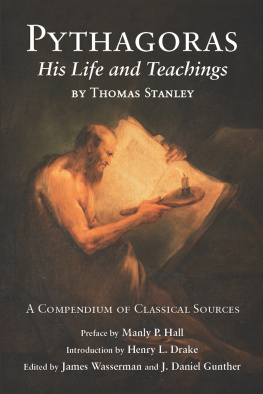
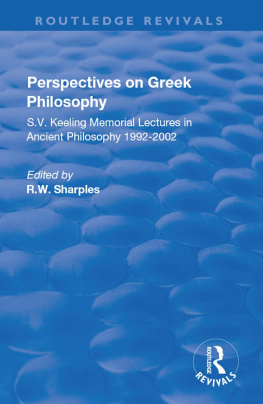
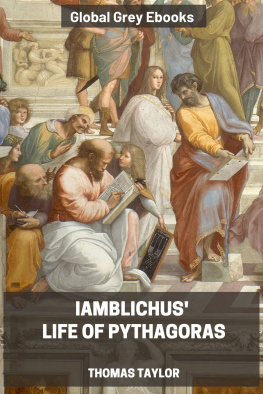
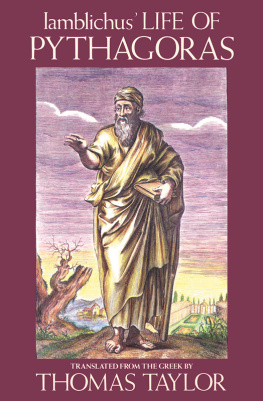
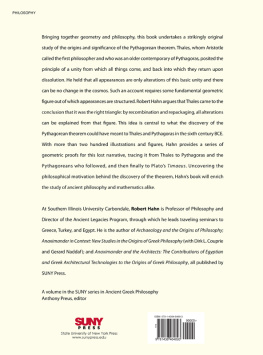
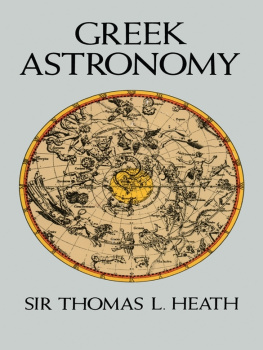
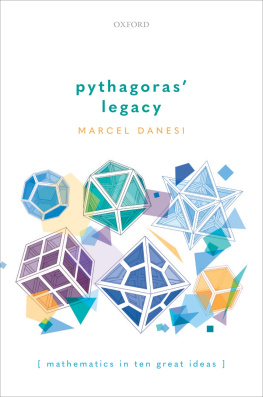
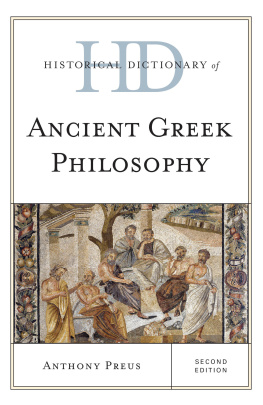
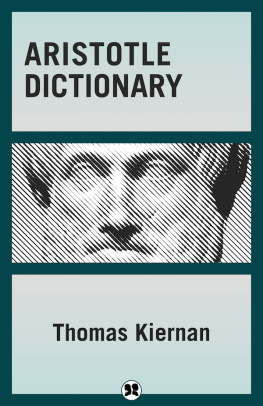
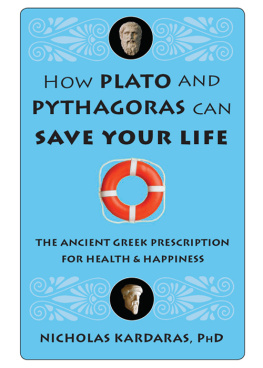
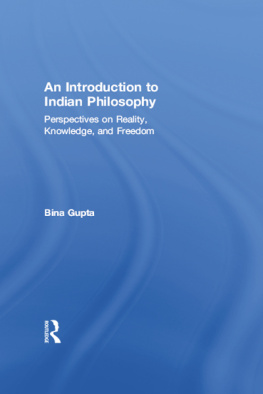

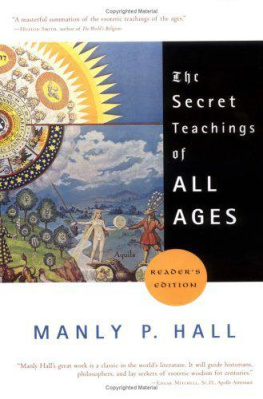
 [mathematics] by Pythagoras, upon consideration that all mental discipline is
[mathematics] by Pythagoras, upon consideration that all mental discipline is